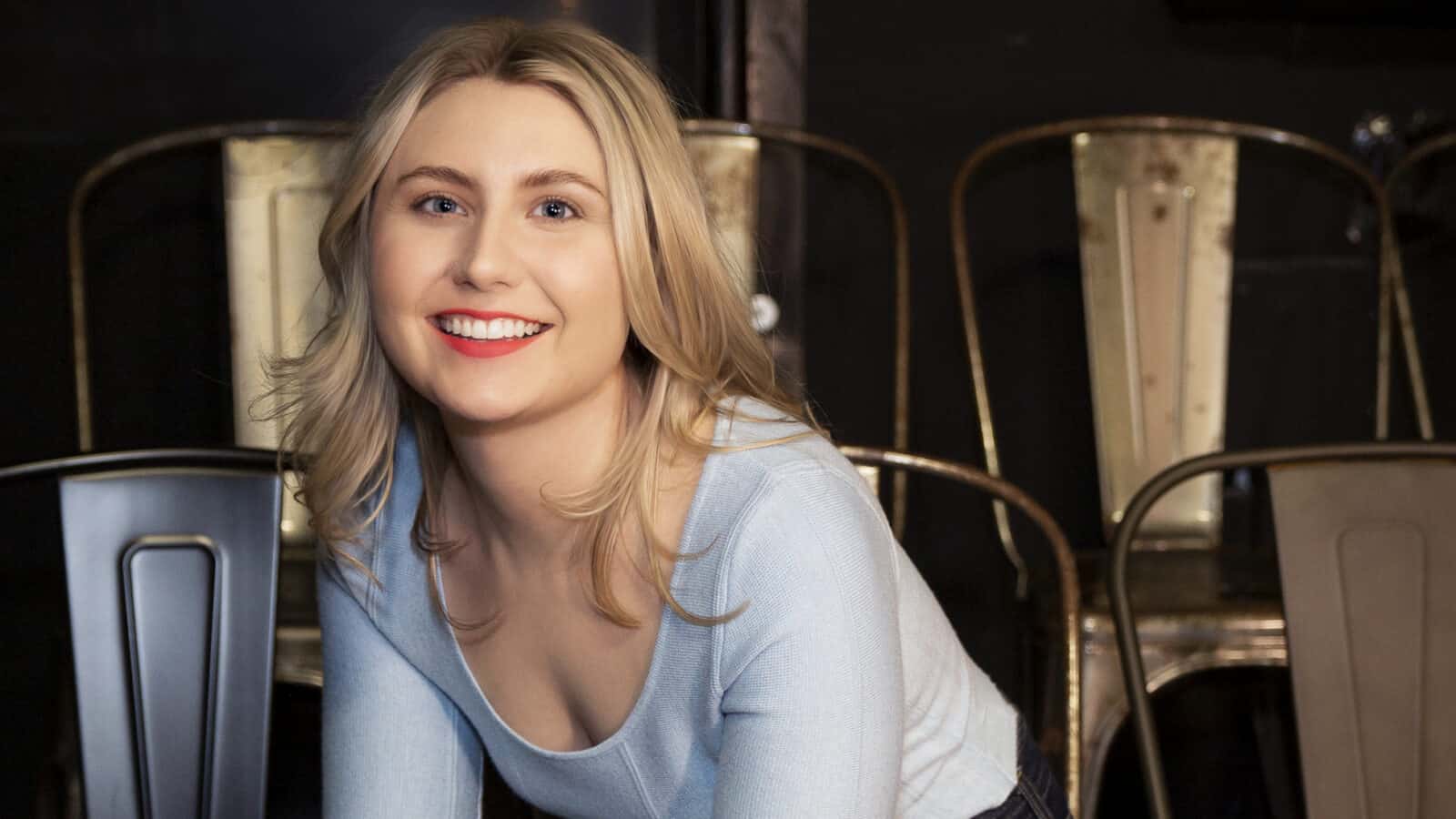WAM Theatre sees the year ahead as time of transformation. As their 2024 season opens with nationally acclaimed singer songwriter Tracy Grammar in Deborah Zoe Laufer’s Be Here Now — Genée Coreno steps in as the new artistic director.
On a winter afternoon, Coreno sat down over tea to consider her new role. After 15 years, WAM’s founding artistic director Kristen Van Ginhoven has moved on to new fields, and Coreno speaks with warm excitement of the company’s work, and the possibilities she sees for creativity and community.
She comes with a background in directing, theater making and devised theater. Imagine the story of two women who live in a small river town, who love each other and keep each other safe in the face of anger and violence and isolation … Imagine a blend of theater and film with a current of magic realism. This is Coreno’s film Madge Love, a top awardwinner at the Paris Film Festival in 2021.
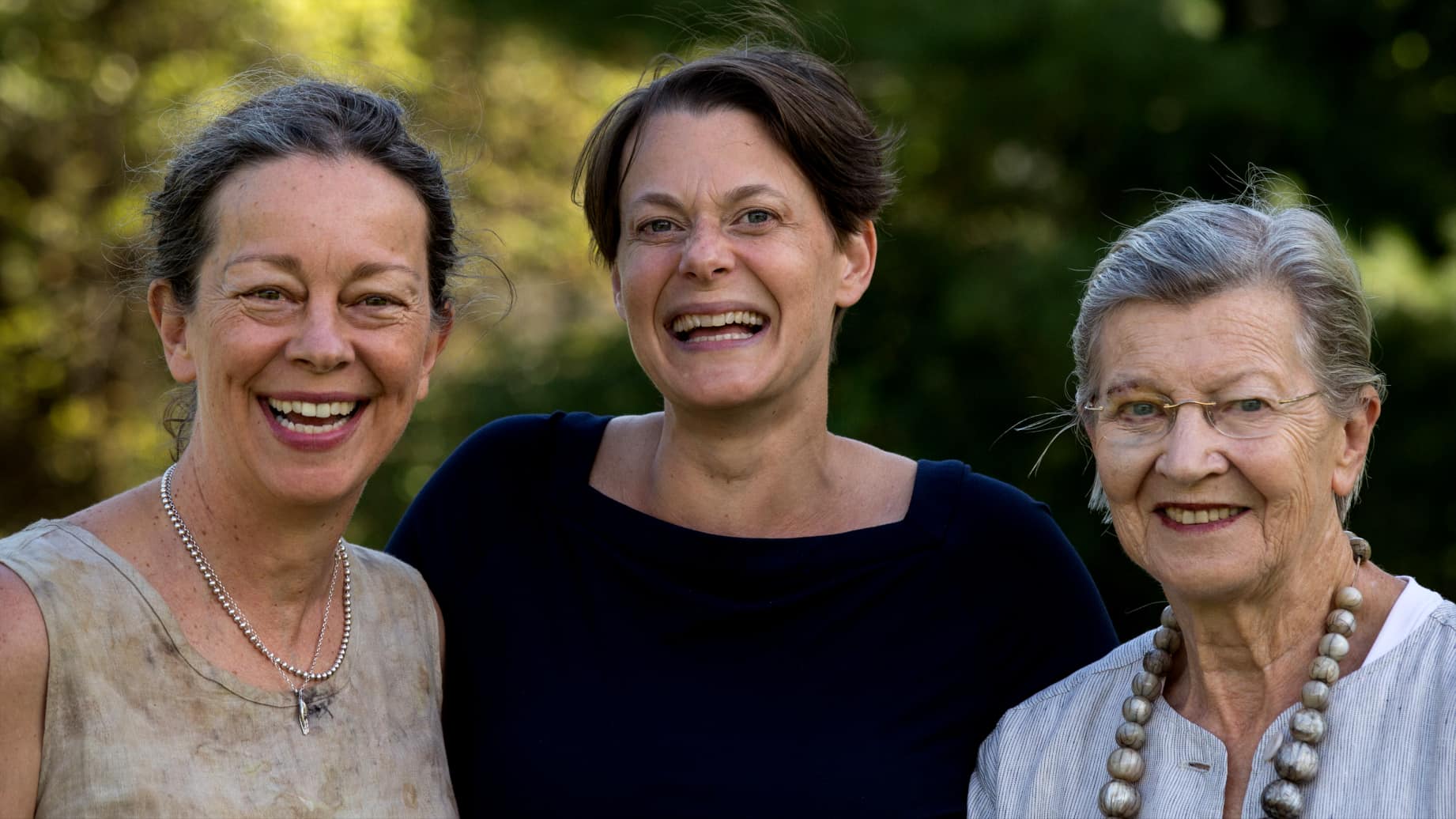
Suzi Banks Baum, Kristen van Ginhoven and Isabelle Kaplan Laugh together in rehearsal for the Bakelite Masterpiece. Press photo courtesy of WAM Theatre
She has written end directed her own work as co-founder of the new York theater company Fringe and Fur, performing in Brooklyn, Manhattan and Queens, and she has served as company manager with Big Dance Theatre, and with the Public Theatre — an iconic venue that has supported history-making emerging theater from the opening of Hair in 1967 to the original run of Hamilton in 2015.
Public Theatre also presents the annual free Shakespeare in the Park, and their Under the Radar festival brings performers from more than 40 countries around the world. In the Berkshires, Coreno says, she looks forward to getting to know places in and around the Berkshires who hold open explorations of theater and performance — Mass MoCA, Jacob’s Pillow Dance Festival, Double Edge Theatre and many more.
She also, like WAM, has a background and focus in activism. For more than four years, she led development and engagement with Every Mother Counts, a maternal health organization dedicated to making pregnancy and childbirth safe, respectful and equitable for everyone.
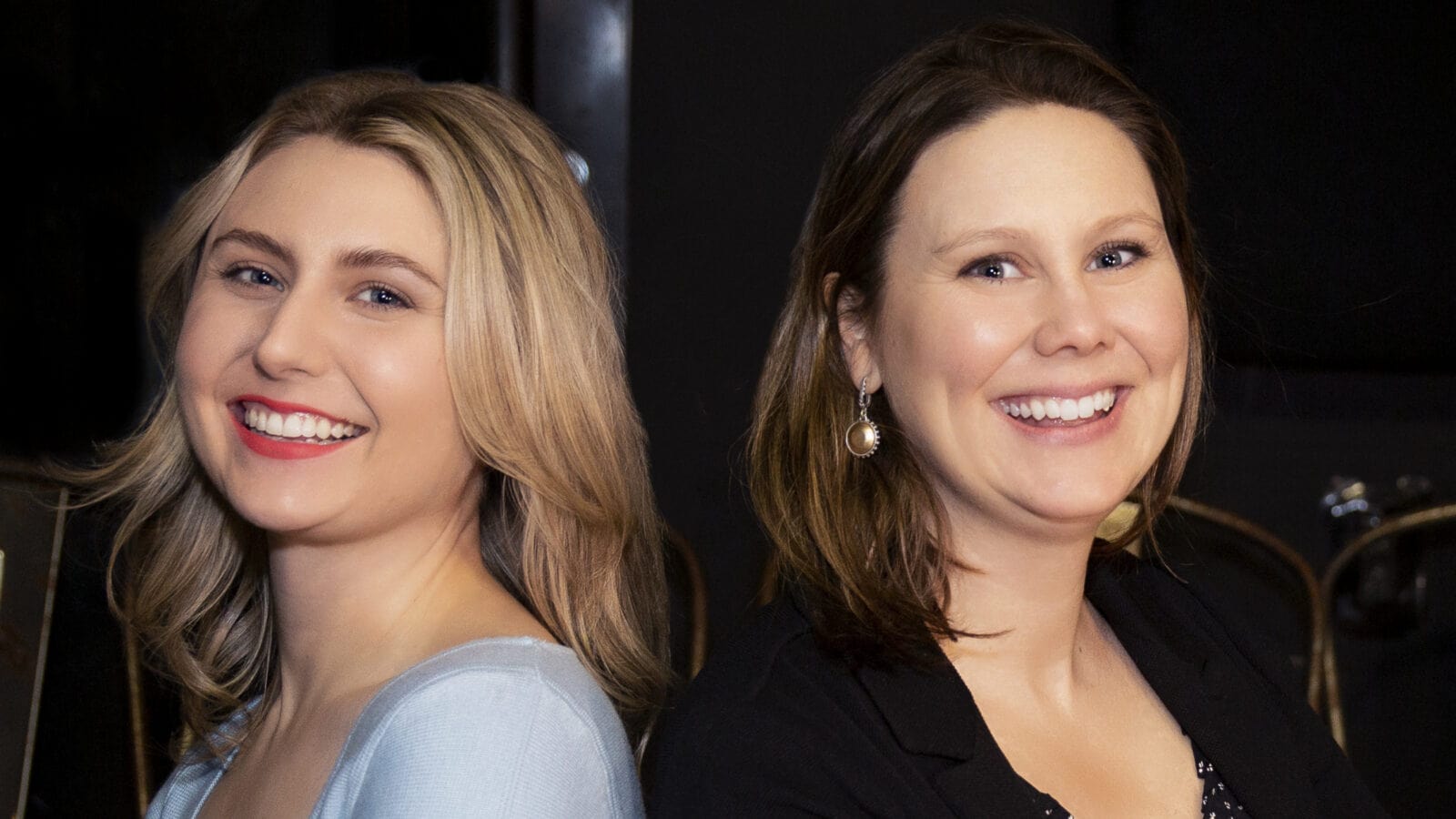
Genée Coreno, WAM Theatre's new artistic director, sits with managing director Molly Merrihew, laughing. Press image courtesy of WAM Theatre
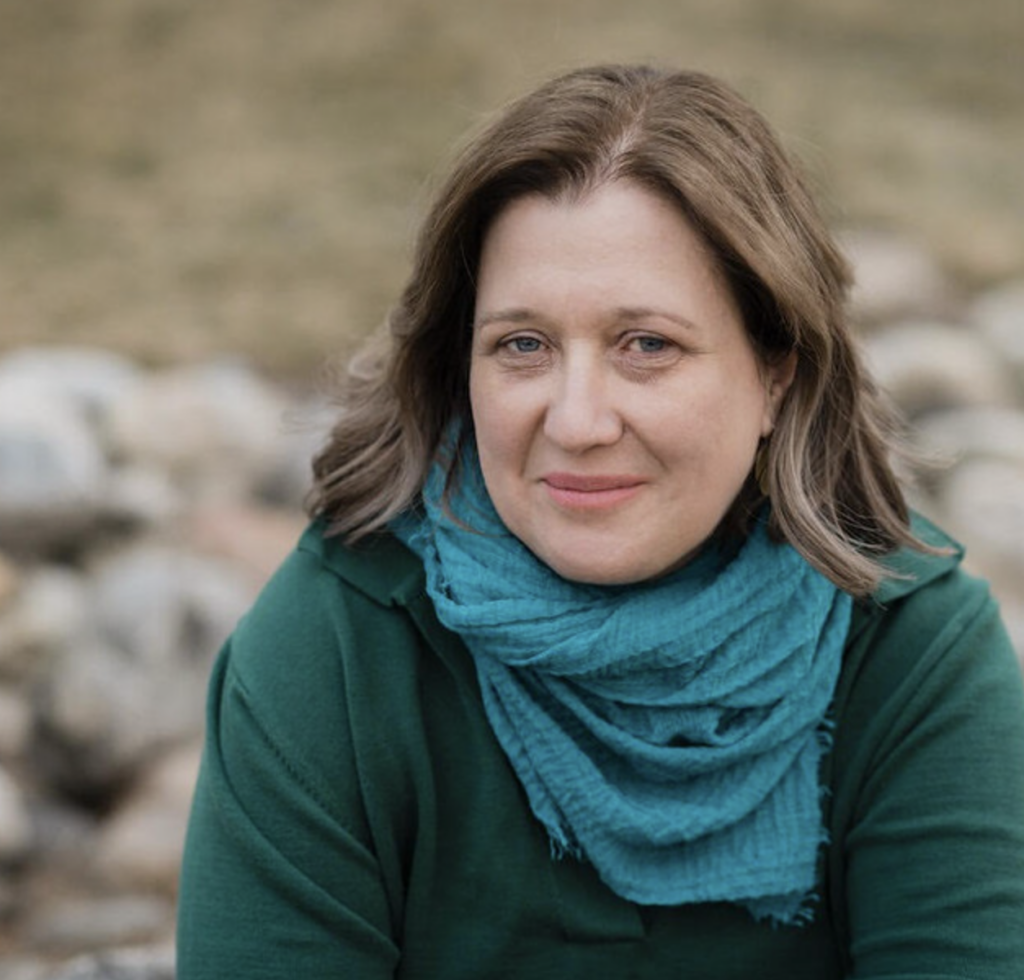
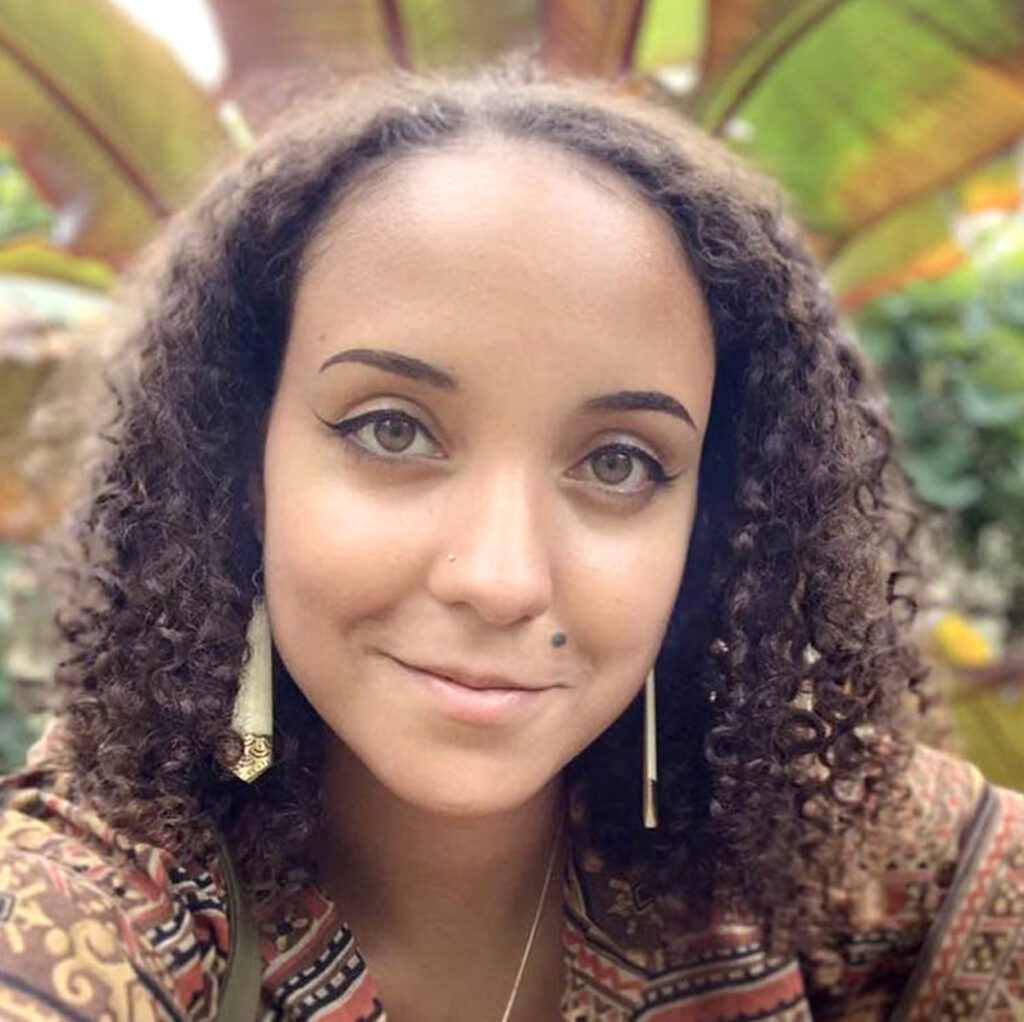
WAM Theatre’s Associate Artistic Director, Talya Kingston, and Erica Barreto, a theater maker and BIPOC advocate on WAM’s team, sit smiling outdoors.
In the year ahead, she and WAM are already making new plans. They have cleared the way to reawaken their devised theater groups in the community, she says, the elder and teen groups that have paused in the pandemic.
They are creating a new BIPOC theater production apprenticeship program, inviting theater makers to work with their mainstage production in the fall, and they are bringing their Fresh Takes staged readings to the Foundry in West Stockbridge, Coreno’s own devised theatre work to the Mount this summer, and exploring a collaboration with Latinas413 to offer summer theater workshops in translation …
Kate:
To begin with, what draws you up here? I’ve gotten the sense, talking with managing director Molly Merrihew and associate artistic director Talya Kingston at your opening event, that on all sides, you and WAM feel this was a good and exciting fit for everyone.
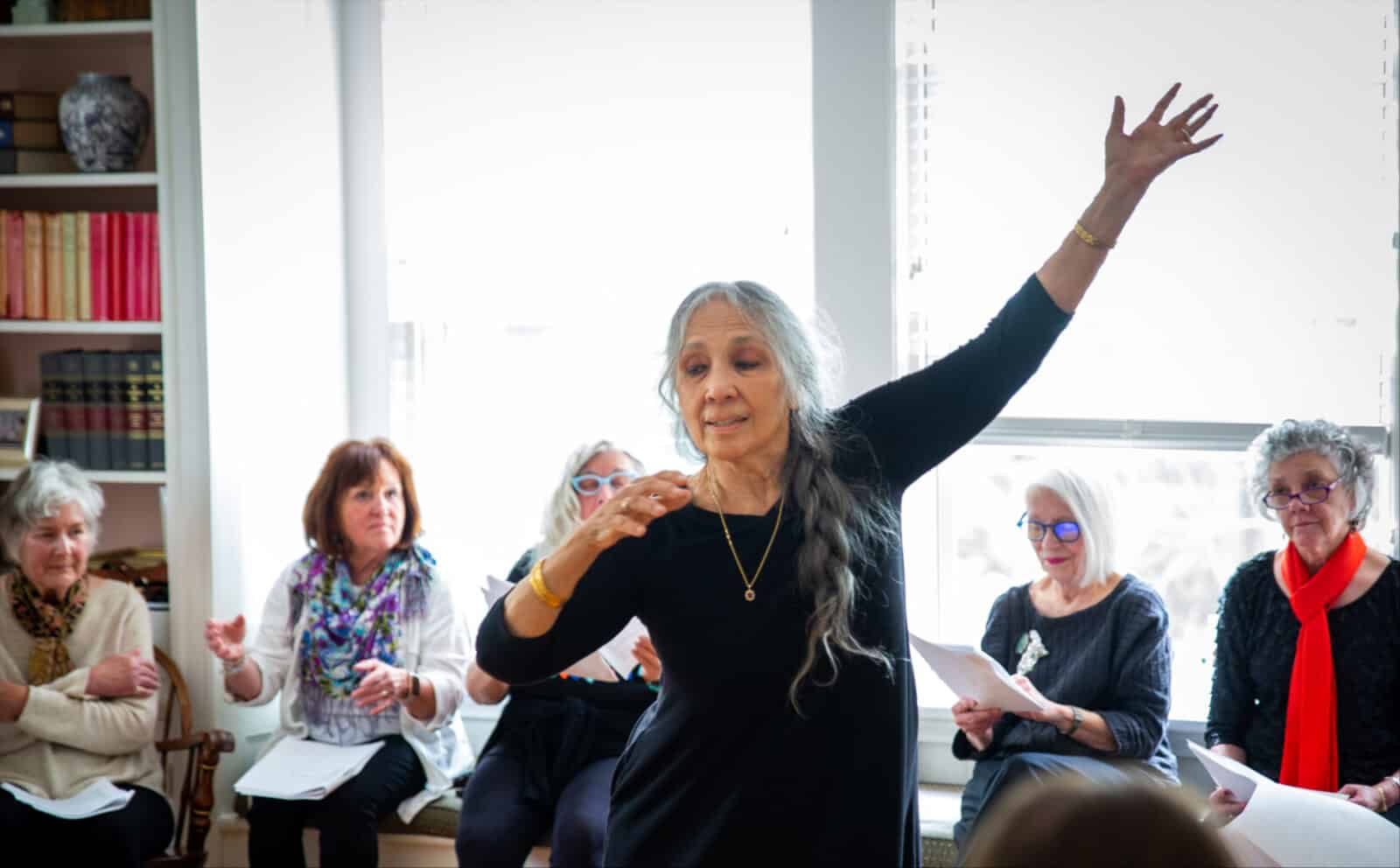
Members of the 2023 WAM Elder Ensemble performa together. Press image courtesy of WAM Theatre
Genée:
I have been following WAM through my entire career. For 15 years I kept checking in on their work … I would reach out to (WAM’s founding artistic director) Kristen van Ginhoven and invite her to my workshops. I could tell that she was a person who cared about trust-based relationships.
WAM Theatre has a high level of producing work by women, or directed by women, or centering women’s stories. And knowing that WAM has a real impact, through community partnerships and the local groups the theater supports, and real acknowledgement of the community that we’re in … that’s powerful for me.
WAM makes an effort to make sure that the stories told here do connect to that work — they are warranted, wanted, needed, aligned with the work that’s already being done.
And then the more I learned about the Berkshires and the density of nonprofit places and people here — this is a very activist-minded, advocate-minded, community-minded space.
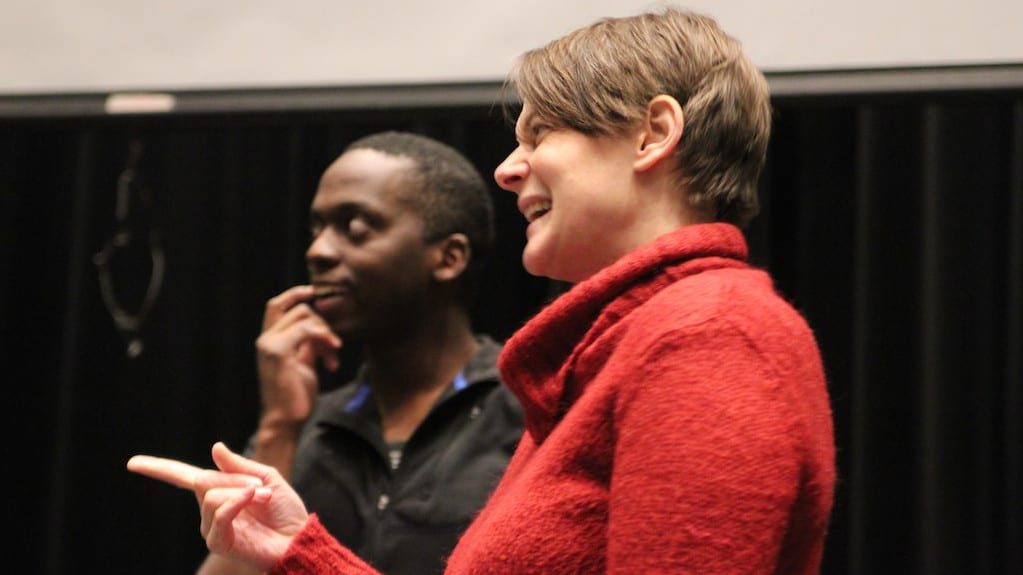
Kristen van Ginhoven, director of WAM Theatre, laughs with JV Hampton VanSant in Facing Our Truth, an event at WAM. Press photo courtesy of WAM Theatre
Kate:
And then coming to the Berkshires?
Genée:
… I was in New York and then Brooklyn making scrappy fringe performances, and I think you get to a place where you are trying to figure out what the right conditions are to make your best work.
And knowing that there is a different experience of time here, and other ways of making space, creative space — it seemed, through the interview process, that WAM has a hunger to make space for my artistic practice. …
WAM thinks
about what artists and creative people need, she says, to sustain their work and feel respected. The theater has been one of the sort of founding organizations in the Pay Equity Project conversation.
In the next year, WAM will re-form the elder group and the teen group for devised theater (which have paused since the pandemic began) and offer a new production apprenticeship program for BIPOC artists.
Genée:
I’ve experienced being a teen and being in devised theater and how it offers you community and opportunities to connect with peers, and the empowerment it can give. … I think the devised theater process lends itself to that. And then the elder ensemble, the number of mature artists who came through (at our auditions) last weekend, at the top of their craft — it was just amazing.
I love that WAM continues to think about ways to compensate and financially empower people through those programs, and make the programs accessible, and also to open the way for people to be visible on stage.
Kate:
That has definitely been my impression of the past, that WAM understands that taking the time to do something like participate in a devised theater group may not be something that people are able to do unless they have some financial compensation, especially for somebody who’s working multiple jobs or caring for their kids.
Genée:
Or have to rely on parents who may not be able to help, or feel the pressures of driving, or gas money, or are they going to feel included if they don’t have a lunch? It’s one thing to offer an opportunity, but to really make people feel present in the opportunity and equipped, prepared — all of those are realities that I can really relate to.
Coming from
her background at the nonprofit Every Mother Counts, Coreno says, she feels a strong connection to WAM’s model of choosing plays that focus on timely community needs and then giving some of the proceeds to benefit local nonprofits who meet those needs. She looks forward to growing these relationships too and exploring new partnerships.
Genée:
We have trust-based relationships with community organizations who are the experts in their field, and they’re delivering on care or training.
Working with EMA has given me some seeds for inspiration for WAM, and how we can continue to get to tell the story — how do we get from WAM’s community engagement programs — devised theater or elder ensemble or bilingual workshops or the apprenticeship program and the art making — to the recipient? Because these stories begin with the recipients.
Kate:
We have seen some devised theater locally, drawing on personal stories — Amy Brentano and Sara Katzoff working with people through 2nd Street who have formerly been incarcerated, or the Playwright Mentoring Project at Barrington Stage Company.
People involved with community groups and nonprofits WAM has worked with, like the Elizabeth Freeman Center, can create some incredibly powerful stories — but you would have to be incredibly careful.
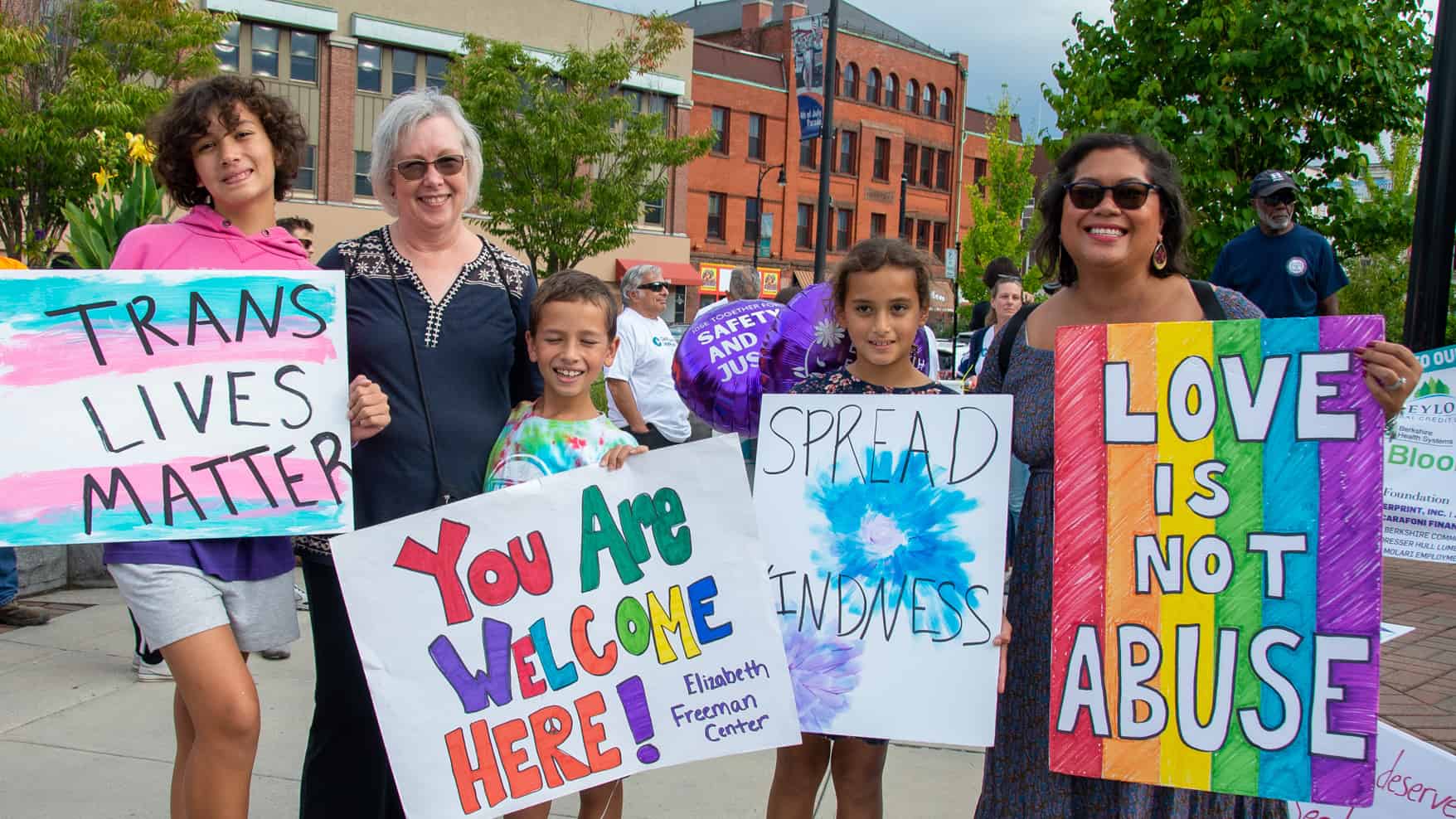
WAM Theatre and the Elizabeth Freeman Center hold an awareness event together. Press photo courtesy of WAM
Genée:
Elizabeth Freeman Center … I completely understand how sensitive a subject that is. In fact, organizations that support survivors directly impacted my life when I was younger, and privacy is important.
I love the idea of people creating work connected directly with their own lived experiences, and I also think that the artwork can be indirectly related. We can tell a magical realism story … and we know people who do that so well that we can continue to make those opportunities. And sometimes that element of abstraction or fantasy can bring an awareness around hard experiences in more gentle ways.
But documentary theatre is so important. It reminds me of Sahar Assaf, the artistic director of Golden Thread Productions in San Francisco — she is from Lebanon, and she created documentary theater project centering the stories of survivors of sexual assault in Lebanon, and another in collaboration with Kafa, a Lebanese civil, non-governmental, non-profit, feminist and secular organization, on sex trafficking.
For that one, an actor performed in the street, as though they had just survived an assault. And you were able to see the real reactions of the community, people not believing the person who had been hurt and attacked, or shaming them. And it became an incredibly powerful collaboration and made a lot of impact, from what I understand.
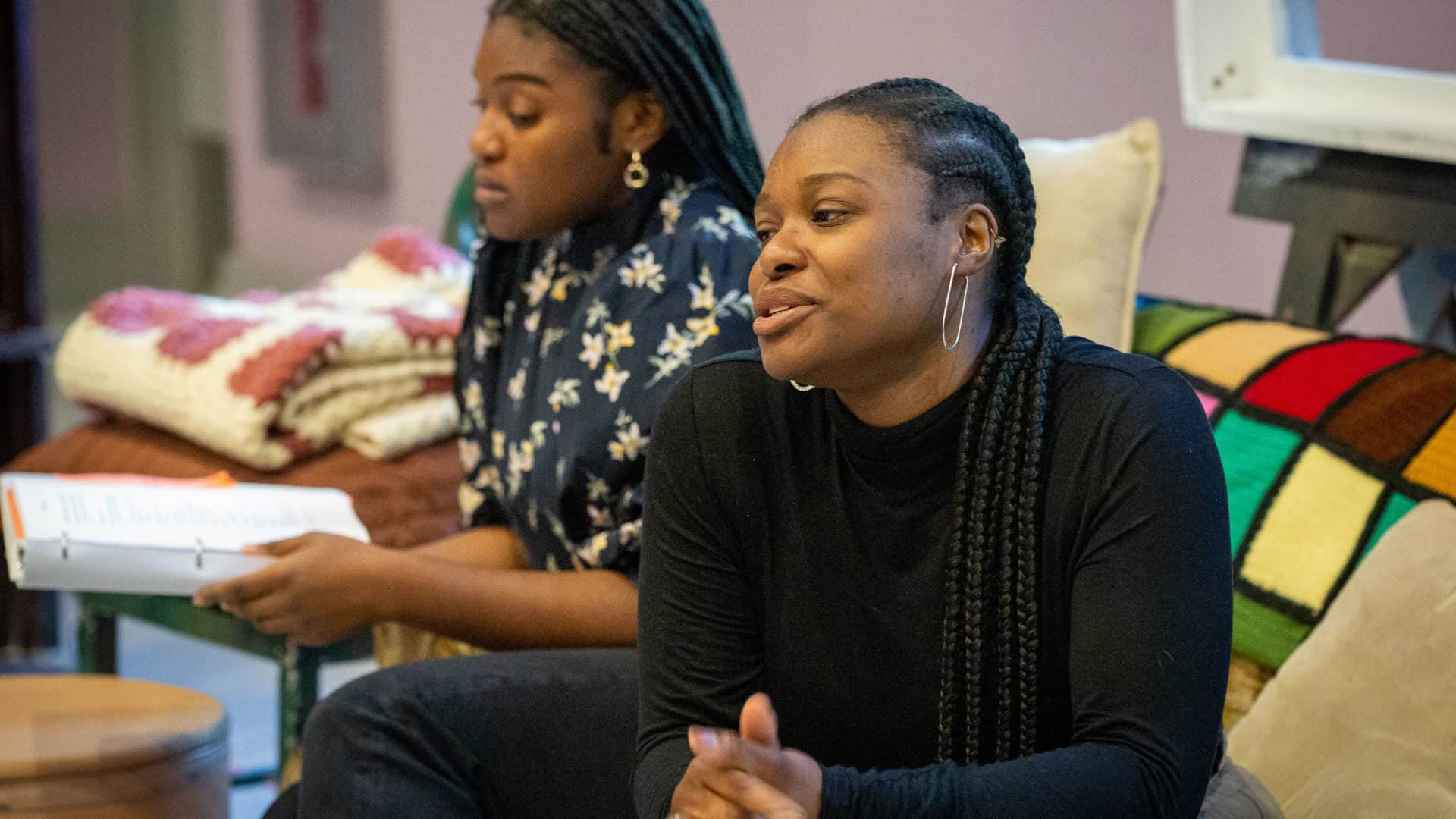
Cate Alston and Kyra Davis banter together in Cadillac Crew with WAM Theatre. Press photo courtesy of the theater
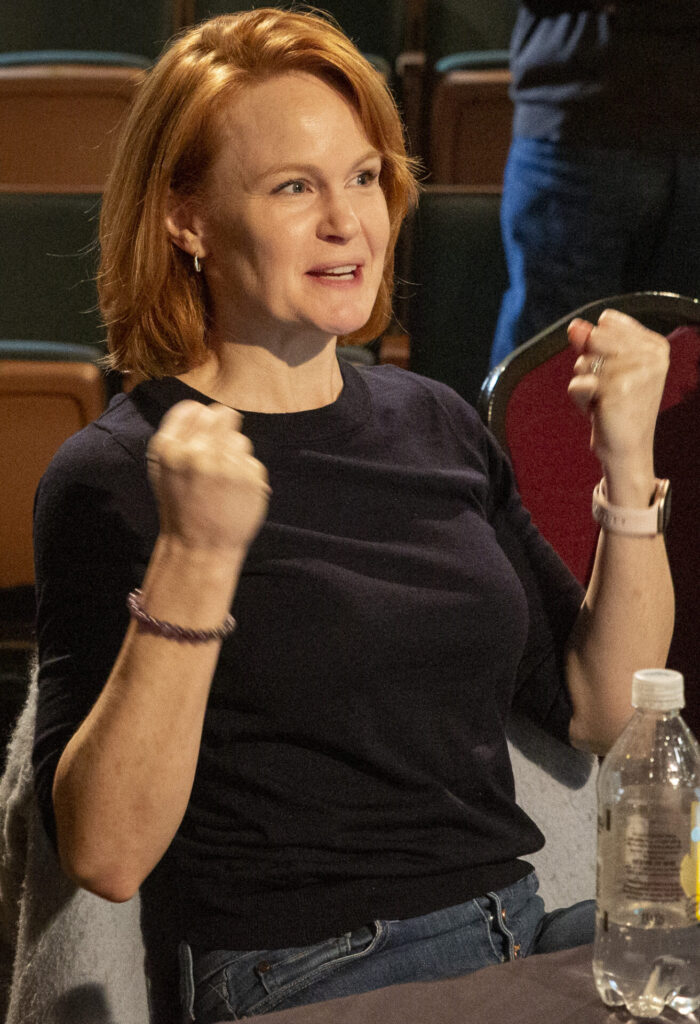
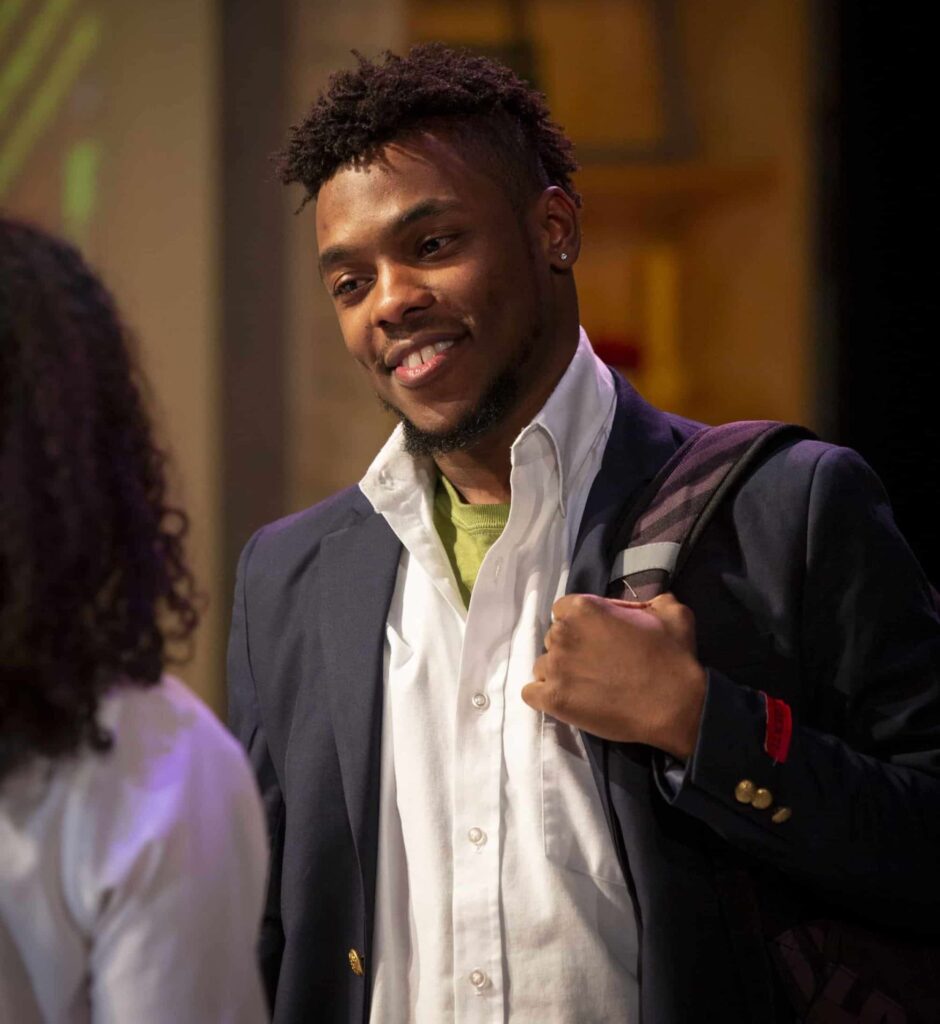
‘Bobby’ Cius as Omari appear in WAM Theatre’s production of Pipeline by Dominique Morisseau – photo by David Dashiell – and two-time Tony Award nominated Broadway actor Kate Baldwin performs as Heidi in What the Constitution Means to Me. Press photos courtesy of WAM Theatre
Kate:
You’re right, there are clearly very powerful ways to create a story in the realistic sense of this is what happens … But how do we create something that looks like healing for someone who has gone through this experience? How do we create something that looks like reclaiming power?
(Playwrights) can tell difficult experiences in beautiful and magically realistic ways. But being able to not only recognize everything that’s broken or painful, but find ways to move towards something that could be different … seems like it could be another kind of powerful.
And I hear you saying that part of what feels important about devised theater is having spaces where people can talk about stories, when they may not have felt they had a a space in the theater world, and especially for women, for BIPOC artists, for LGBTQ folk, for so many people.
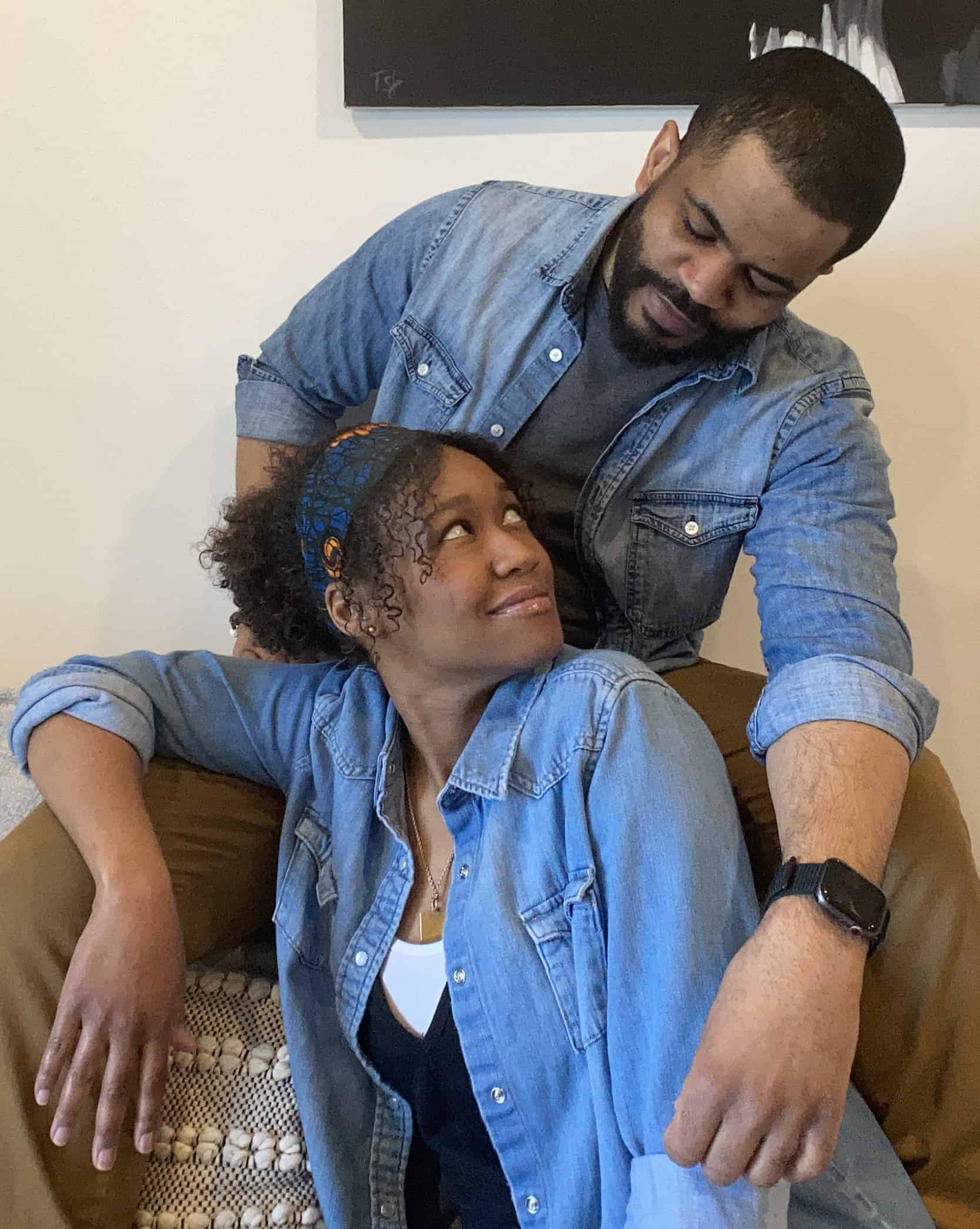
Boston-based actors Elle Borders and Brandon G. Green, a couple in real life as well as on stage, sit together on the couch as they rehearse for The Light with WAM Theatre. Press photo courtesy of the actors and WAM.
Genée:
Yes … When I think back to taking this job, a lot of the questions in the interviews were ‘what has your advocacy been like in your life.’ This was a hard question for me to answer because it was so personal.
Genée considers
experiences of learning and family and understanding. As an adult, she says, she has reflected on the racism and discrimination her stepfather encountered in her presence. She witnessed first hand how systems of oppression dismissed his dignity, integrity, and humanity within a predominantly white community in upstate New York. She has two brothers from her mother and stepfather. When she was six years old, she realized her first brother was on the way, finally.
And in part, a version of my advocacy happened because I grew up in a biracial family. My brothers’ father is Black, and I was about four or five when I met him. And then I was a part of his family for a time while my parents, those two people, were together.
Genee:
It was a monumental moment! I always wanted brothers and then I had two! I felt an obligation to learn about black culture in ways that were accessible to me at that young age -I spent a lot of time reading children’s books about Martin Luther King. And I had this intense sense of curiosity, joy and responsibility. ‘This whole experience is going to be transformative for everyone, because there’s a dimension that wasn’t there before, and it is going to be beautiful.’ Of course it was and my family still faced obstacles as an interracial family in the 90’s.
Genée: I’m still on a learning journey. Perhaps, I’ve had proximity to Black culture in ways maybe some White people haven’t, but I’m not Black.
When I think of the evolution of being an advocate, that journey has added richness to my life and insight into the ways you can be in a family or community, to have intimacy and yet — otherness and privilege and places that perhaps we will never intersect – I will always value this part of my life.
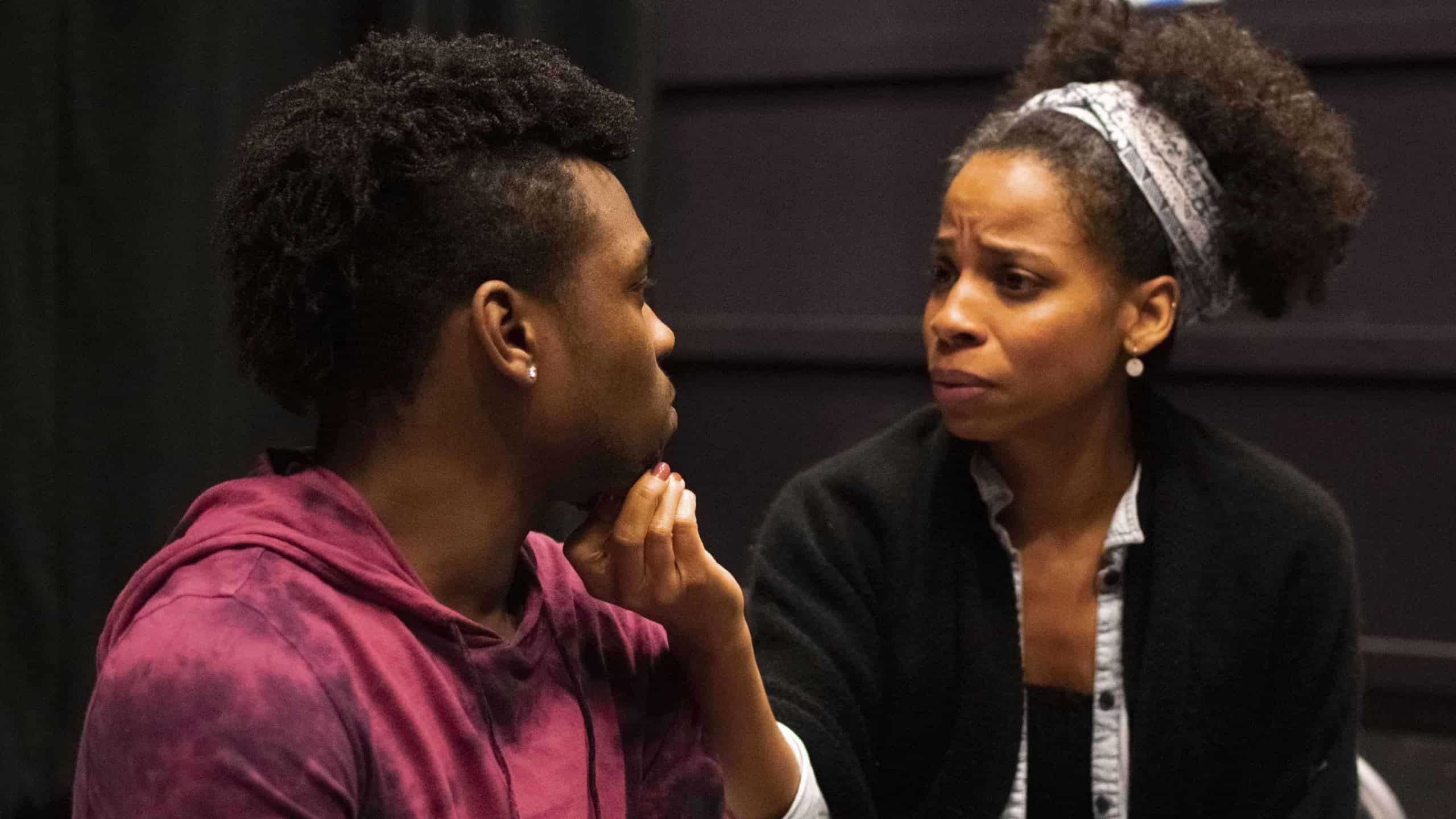
Alexandria Danielle King appears as Nya and Hubens 'Bobby' Cius as her son, Omari, in WAM Theatre's production of Dominique Morisseau's Pipeline, directed by Dawn M. Simmons. Photo by Nina Groom, courtesy of WAM
I recently said to my brother, I’ll never know what it is like for you to be in between two worlds the way that you are, and so I can’t say ‘I totally understand,’ I just can say, ‘I believe what you’re experiencing.’
I think some of my advocacy is also recognizing someone else’s pain is not my pain … and not to assume the expression of the pain that they might experience. I want to hold space for others – To give them space and honor their story and humanity and the emotion that comes along with their lived experience – while remaining responsible for learning, listening and believing. Trust is everything and it is built over time.
Kate:
At the press opening, you touched on WAM’s new BIPOC apprenticeship program, and I wanted to ask more about that. What kinds of roles does that apprenticeship cover?
Genée: The new BIPOC apprentices will work with us in Galileo’s daughter, our mainstage performance in the fall. Right now we are thinking about directors and designers, stage management … but the exciting part for me is to create real relationships with BIPOC artists and MENA artists over time, relationships that are trusted.
And I think this opportunity, knowing there’s new leadership, builds upon what Kristen started in our accountability work. But it also says, you’re here this year to be in mentorship, in a paid mentorship, with someone who is a professional. And then next year, for eligible productions, you come back and you are the professional artist who gets paid. And then you are also mentoring someone.
And in this long view of relationship building, WAM is going to change so much. People are going to feel more welcomed into our spaces. Our policies will change. The projects that will appear — we may be working on one project, and then someone can say did you read this, or did you do this? And those conversations and relationships will naturally lend themselves to better, more inclusive representation of artists.
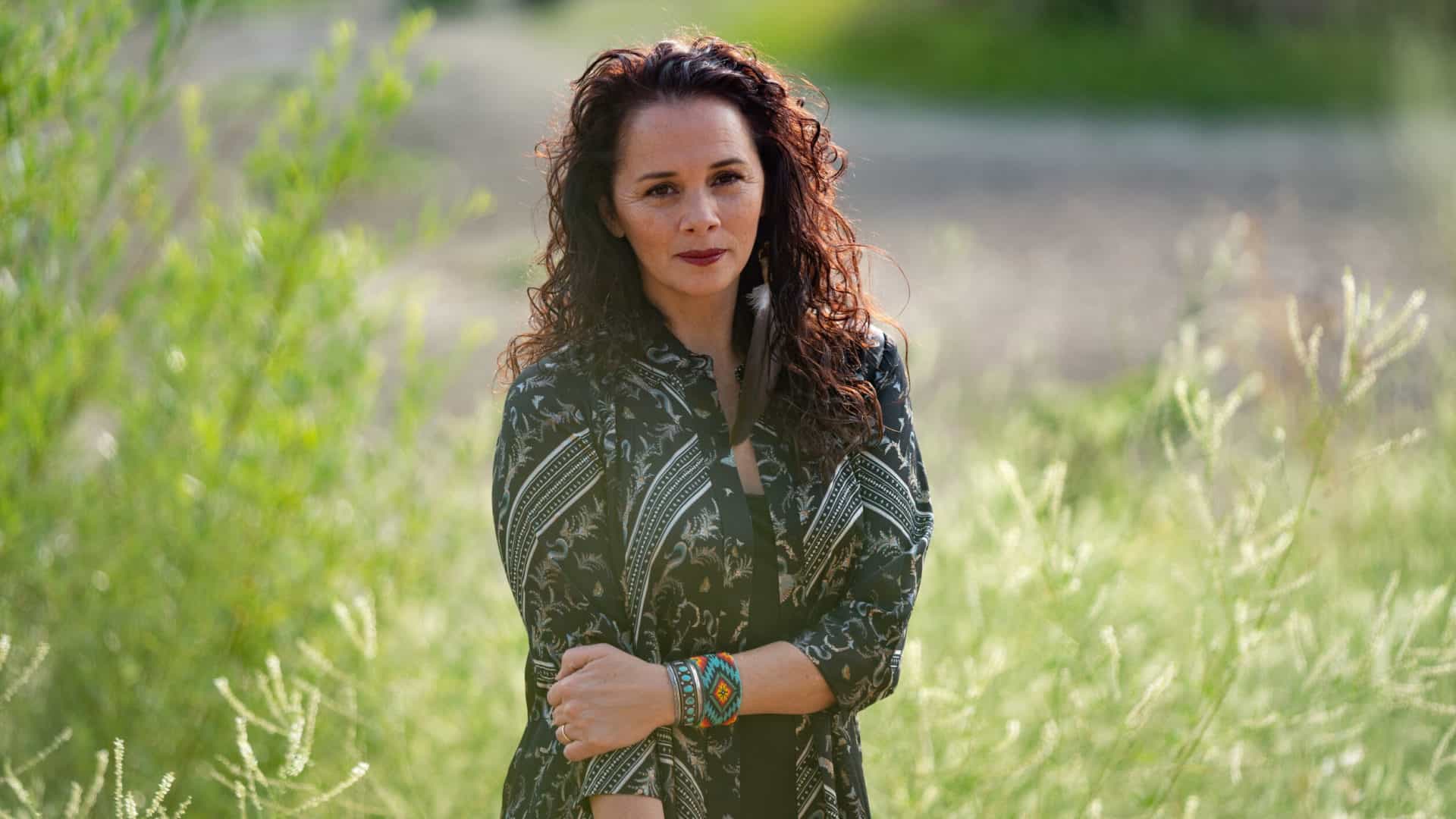
WAM Theatre performs a contemporary comedy by Nationally acclaimed playwright Larissa Fasthorse. Press photo courtesy of Larissa Fasthorse
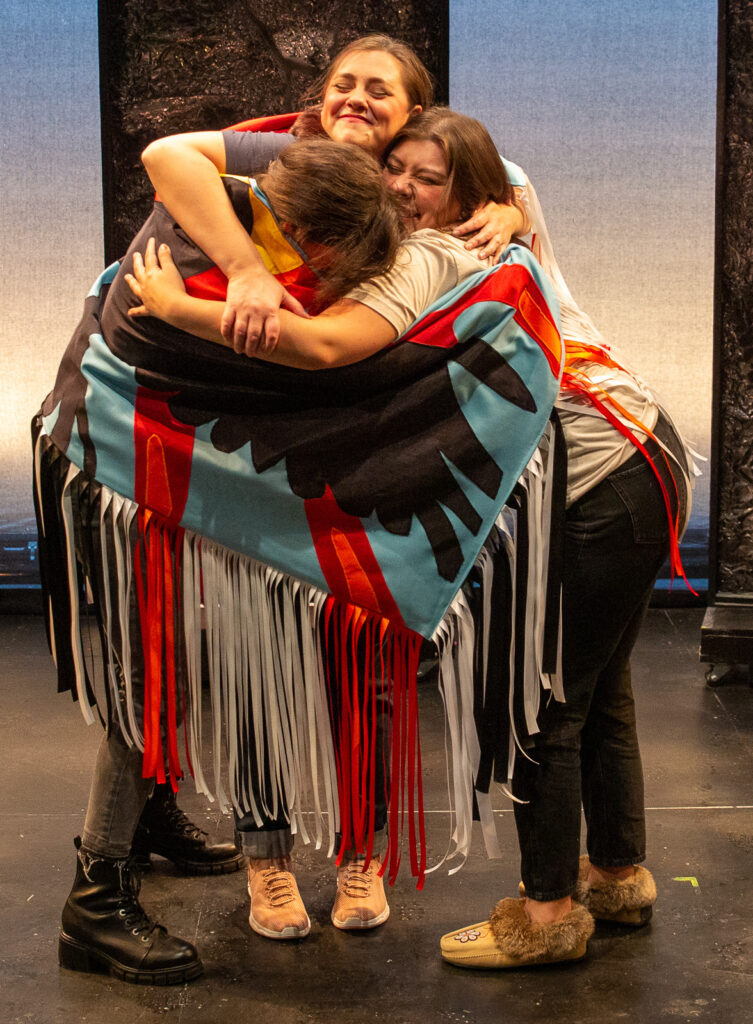
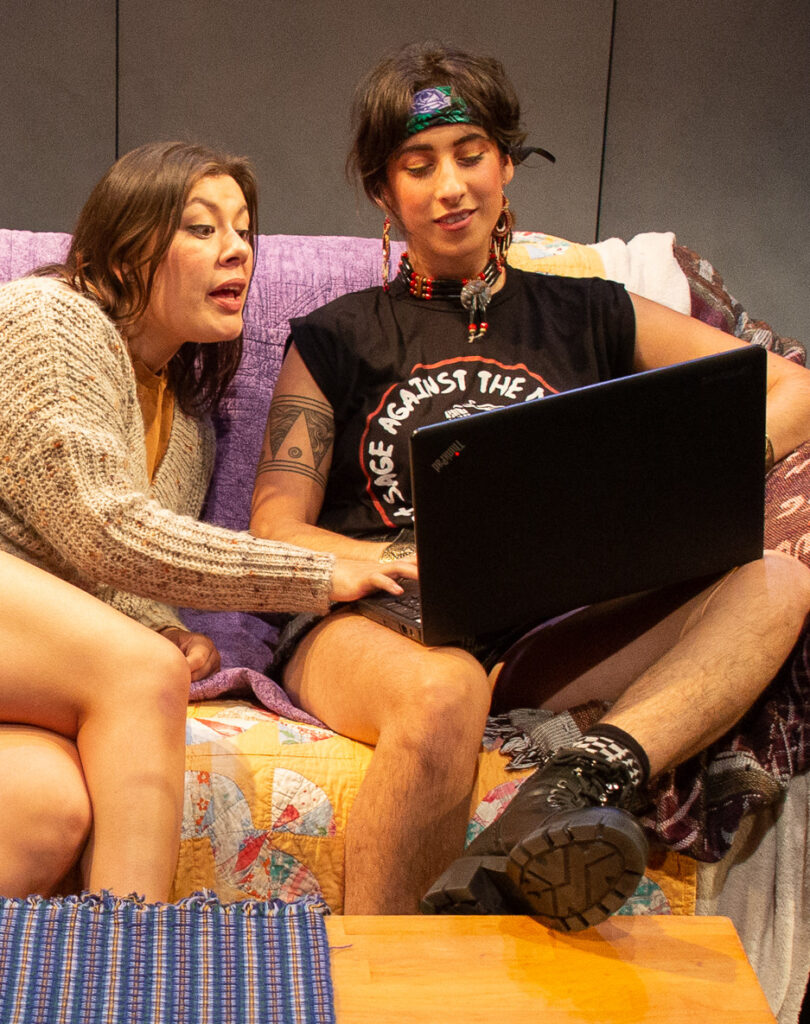
Ria Nez, Jasmine Rochelle Goodspeed, and Sarah B. Denison hold each other in the WAM Theatre production of KAMLOOPA by Kim Senklip Harvey, directed by Estefanía Fadul. Press photos courtesy of WAM Theatre

